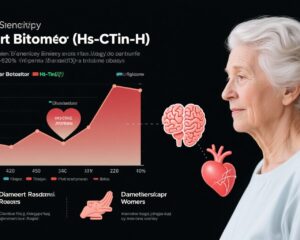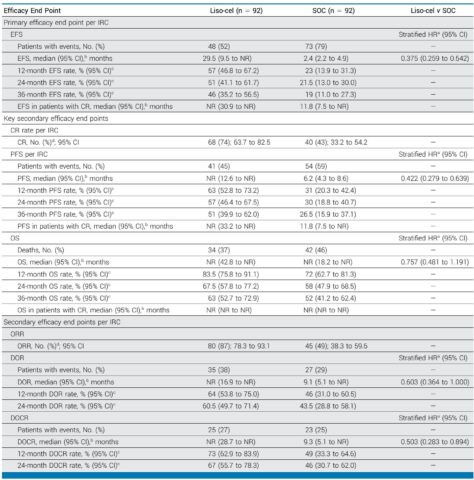Background and Disease Burden
Asthma is a chronic inflammatory airway disease affecting millions worldwide and known for its heterogeneous clinical manifestations and variable severity. Beyond respiratory morbidity, asthma has increasingly been linked to adverse cardiovascular outcomes, including coronary artery disease and heart failure. However, the association between asthma and degenerative valvular heart disease (VHD)—which includes progressive disorders of heart valves such as aortic stenosis (AS), aortic regurgitation (AR), mitral regurgitation (MR), and pulmonary regurgitation (PR)—remains insufficiently characterized. Degenerative VHD is a leading cause of morbidity and mortality, especially in aging populations, being responsible for heart failure, arrhythmias, and sudden cardiac death. Understanding potential risk factors such as systemic inflammation common in asthma might uncover pathophysiologic pathways and inform preventive cardiology in this population.
Study Design
The referenced prospective cohort study utilized data from the UK Biobank including 483,735 participants with no prior valvular heart disease at baseline. Participants had a median age of 56.5 years and 45.2% were male. Asthma status was self-reported at recruitment. Incident degenerative VHD cases occurring during a median 13.8 years of follow-up were identified through hospital admissions and mortality records using ICD-10 diagnostic codes.
Researchers applied Cox proportional hazards regression models to estimate hazard ratios (HRs) and 95% confidence intervals (CIs) for the risk of each valve disease subtype associated with asthma. Adjustments accounted for demographic profiles, lifestyle factors, and clinical comorbidities. Sensitivity analyses further examined the impact of asthma medications, duration of asthma, and competing risks (such as death from other causes).
Key Findings
During follow-up, 5,388 participants developed aortic stenosis, 2,650 aortic regurgitation, 6,088 mitral regurgitation, and 821 pulmonary regurgitation. Asthma was independently associated with increased risks of multiple degenerative valvular diseases:
– Aortic stenosis: HR 1.31 (95% CI, 1.21 to 1.41)
– Aortic regurgitation: HR 1.24 (95% CI, 1.11 to 1.39)
– Mitral regurgitation: HR 1.19 (95% CI, 1.10 to 1.28)
– Pulmonary regurgitation: HR 1.34 (95% CI, 1.10 to 1.62)
Adjustment for asthma medication attenuated the association with AR (HR 1.12; 95% CI 0.97 to 1.30), suggesting medication effects or confounding. The findings remained robust upon controlling for asthma duration and exclusion of participants with prior cardiovascular disease. These results imply that asthma contributes to the pathogenesis of degenerative valvular diseases, possibly through systemic inflammation or immune-mediated mechanisms.
Expert Commentary
This study extends the cardiovascular implications of asthma beyond coronary and myocardial diseases, suggesting that chronic airway inflammation may also influence valvular tissue degeneration. The modestly increased risk of valvular diseases in asthmatic patients points to a shared inflammatory or immune-related pathophysiologic pathway that merits further mechanistic investigation. Although the hazard ratios indicate moderate risk elevation, the large population impact could be significant given asthma’s prevalence.
Potential limitations include reliance on self-reported asthma diagnosis, which could introduce misclassification bias, and observational design that cannot prove causality. Residual confounding by unmeasured factors also remains possible, although extensive covariate adjustment and sensitivity analyses strengthen validity. Clinicians should be aware of the potential cardiovascular risks and possibly consider enhanced surveillance for valvular heart disease in asthmatic patients, particularly older adults.
Conclusions
This large longitudinal cohort study reveals an independent association between asthma and an increased risk of degenerative valvular heart diseases, particularly aortic and mitral valve pathologies. The findings encourage consideration of systemic inflammation as a convergent pathway in asthma and valvular degeneration and underscore the need for integrated cardiovascular care in asthma management. Future research should focus on elucidating underlying biological mechanisms and evaluating the impact of asthma control and therapies on VHD progression.
Reference
Wang Z, Qian X, Lv J, Li Z, Yin Z, Wang C, Zhao S, Gao X, Wu Y. Asthma and risk of degenerative valvular heart disease: a prospective cohort study. Heart. 2025 Aug 19:heartjnl-2024-325575. doi: 10.1136/heartjnl-2024-325575 IF: 4.4 Q1 . Epub ahead of print. PMID: 40830044 IF: 4.4 Q1 .


